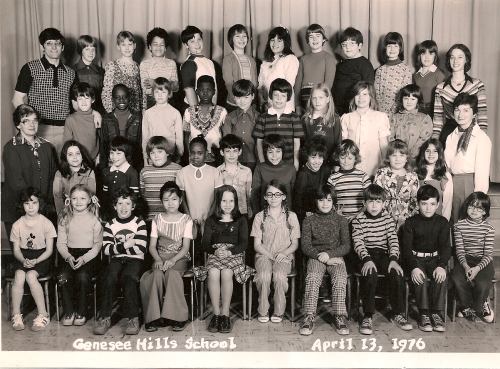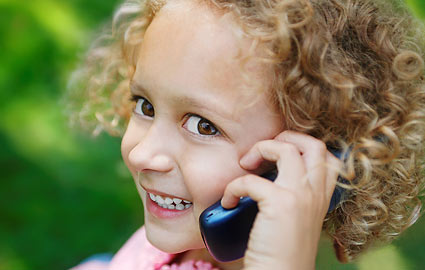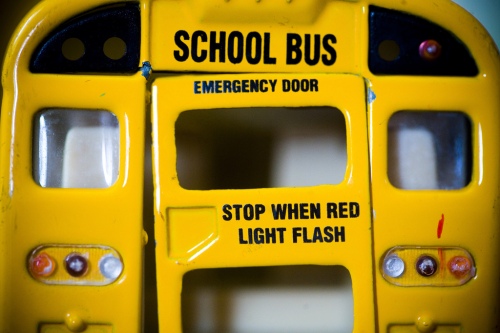When I was a student at Genesee Hills Elementary School in the 1970s, we had quite a bit of free time during which we actually interacted with our peers: during lunch, recess, specials, sure. But also during class. In 3rd grade with Mrs. Marmillo and Mr. Barnello, we enjoyed an amazing invention called “Boy, Girl and Group of the Week.” A concept that would never fly now, I feel fortunate to have been part of this fabulous, classroom environment, and I know dozens of people who likely feel the same way.
Before I tell you about Boy, Girl & Group of the Week, keep in mind, this classroom phenomenon happened in 1976 — more than 30 years ago — so I could be wrong on some of the basics (so for those who may remember, feel free to chime in).
I want to say that on Friday afternoons, students from our two 3rd grade classrooms gathered together to nominate students as Boy and Girl of the Week. Students who went out of their way to do something nice for their peers were considered, so we said things like:
I want to nominate Jeff F. as Boy of the Week because he lent me a pencil when I didn’t have one.
or
I want to nominate Siobhan E. because she got me a tissue when I had a bloody nose, and then she helped me to the nurse’s office.
Meanwhile, our teachers sat quietly and made hash marks (or something) on a clipboard. Unless, we gave too many nominations to the same kid — in which case they would encourage us to look around the room and notice people who had possibly never been nominated, they were pretty silent.
When we finished, our teachers determined and announced the Boy, Girl and Group of the Week. (Maybe it was predetermined. It probably was.) The prize? Winners got the privilege of walking from our elementary school to Burger King, a little less than a mile away, sometime the following week along with our teachers. To get to BK, we walked on roads – not sidewalks. Yes, there were a few cars, but we walked – single-file in sun and in slush – to get to a hamburger, small fries and a soft-drink. It was heaven.
 Imagine teachers pulling off this weekly field trip in 2010. It’s practically impossible.
Imagine teachers pulling off this weekly field trip in 2010. It’s practically impossible.
First off, I have a feeling 90% of today’s parents would say they don’t like the idea because Burger King is fattening, and (in case you hadn’t heard), we have an obesity epidemic in our country. Okay, this may be the case when you are eating BK every day. But we weren’t back then. And we used our lunch and recess periods (both of which were longer than they are now) to walk to and from Burger King. The trek was just under 1.5 miles, but we walked briskly, so it was a good healthy walk.
We used our best manners while waiting in line. I remember standing in the BK queue, preparing to place my order — using my own voice to speak to an adult, “One hamburger, please,” I would say, careful to add, “Thank you.” Eating with my teachers and friends was a most amazing reward! We learned so much about each other during our walks to and from school and while sitting in the big booths together. We learned about our teachers’ families, their children. We learned if our classmates had siblings, what color our classmates’ rooms were painted, and if we liked to play the same games. We learned whose parents were divorced. Hell, we learned what the word divorce meant! We learned to speak, and we learned to listen.
I imagine, these days, most parents wouldn’t like the idea of children walking on main roads with traffic. Because people worry about things like that these days. Because someone could get hit by a car! Or get abducted! Or fall into a ditch and twist an ankle! (The last scenario was probably the most likely.)
As far as I know, my parents signed one skinny permission slip to allow me to go on the aforementioned trip off campus to BK and provided me with the requisite dollar or so to purchase my meal. These days, I imagine there would be a 12-page document that would have to be signed by parents, promising to waive their rights to this, that and the other thing. Back then, nobody worried that we were going to get hit by cars or fall in gulches or get kidnapped. Everyone just kind of assumed giving children additional privileges came with giving us additional responsibilities. People sought to broaden our world experience rather than limit our boundaries.
We had so many opportunities to practice civility in elementary school. It was okay to have a little idle chatter time built into our day. The classroom was the place where we learned our academics, but we also practiced our social skills. Today, I would imagine that most administrators would tell parents that there is simply not time for idle chitter-chatter. A few years ago a school administrator told me that “school is not the place for children to make friends.” She argued that kids needed to get involved in extra-curricular activities if they were interested in making friendships. She explained teachers needed to make the most of classroom time to prepare students for standardized tests, that teachers have more to teach than ever.
In 2010, I would argue “the civility piece” has fallen out of the curriculum — along with the belief that there are benefits to idle time. In 1976, it seemed like there was an emphasis on these things, as well as the other things we learned as by-products: patience (eventually everyone got to be Boy or Girl of the Week), paying attention to the little things, actually making an effort to help out a fellow student in need, being a good citizen (not just because it could get you a trip to Burger King but because it felt good). And a million other things, too.
And in this age of technology, a little more emphasis on these seemingly insignificant niceties could go far to help kids plug into each other and their behaviors. I mean, a student might not bully the kid upon whose vote he depends to get some kind of special reward.
And I would argue that sometimes the greatest life-lessons occur when it doesn’t appear that one is learning at all.
But that’s probably a hard sell these days.












